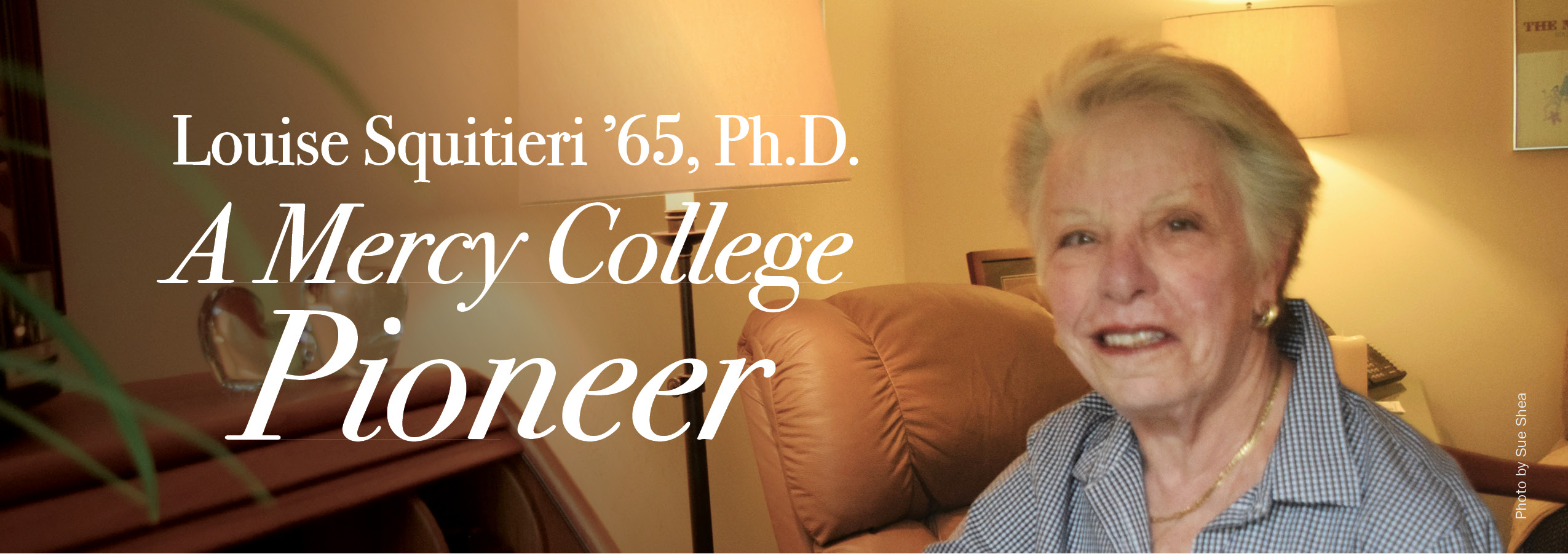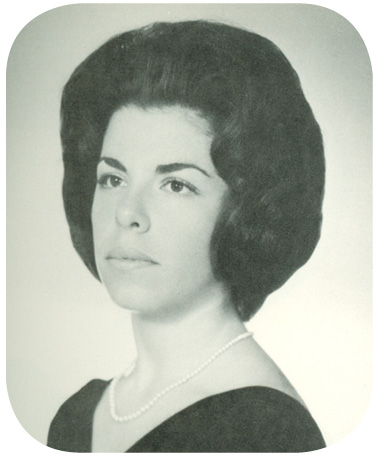
Louise Squitieri ’65, Ph.D., refers to herself and the other members of the class of 1965 as “pioneers.” And in a sense, they were. They were the first women who were not Sisters of Mercy to attend Mercy College. They saw potential in Mercy and enrolled at the College when it was located in four rented classrooms in a high school building. And, after earning their diplomas, they went out into the turbulent world of the mid-1960s to accomplish great things and build Mercy’s reputation.
Squitieri decided to enroll at Mercy primarily because the College offered her a scholarship. This created a certain reciprocity: “I took a chance on Mercy because Mercy took a chance on me.” Every day, she took two buses from the Bronx to Dobbs Ferry, a 90-minute ride each way. She reports that the education she received at Mercy was first-rate: “We had excellent instruction. Very intense. We were the beneficiaries of ideas and techniques that most schools brought in later on, like cooperative learning and mentoring.” She recalls attending etiquette lessons, volunteering at a nearby orphanage, and making trips to a tavern in town. She remembers her class as tight-knit and supportive: “We knew we had to prove ourselves, so we supported each other.”
As she continued her education and began her career, Squitieri became a pioneer in another sense as well by pursuing a career in science and academia at a time when this was not a typical path for women. However, she did not realize that her path was unconventional until later. “It wasn’t difficult to decide to study biology at Mercy because we were all women there, so we didn’t know about discrimination. And by the time we got out into the world, we weren’t about to put up with it. We were going to do what we wanted to do because we believed we could do it,” she reflected.
"I took a chance on Mercy because Mercy took a chance on me."

After graduating from Mercy, Squitieri earned a master’s degree in biology and chemistry education from Fairleigh Dickinson University and a Ph.D. in biology from St. John’s University. Along the way, she taught for a few years in a public high school before teaching biology at one of Mercy’s former satellite campuses in Yonkers while teaching biology at CUNY’s Bronx Community College. Eventually, she became a tenured professor at Bronx Community College and then a dean at another CUNY college.
One of Squitieri’s enduring passions was ensuring that undergraduates studying science — even those attending a community college — were able to conduct research early in their undergraduate years. “Conducting research gives students the chance to see whether they like studying and practicing science before they get too far along in their education,”
she explained. “It shows them how exciting science can be.” Many others dismissed young community college students as not being capable of real scientific research, but Squitieri disagreed. While dean, she secured millions of dollars in grants to support student research. As a result, CUNY students conducted research and published their work in journals, activities that students at other institutions were not exposed to until much later in their undergraduate programs or even not until graduate school.
All along, Squitieri made a point to stay active within the Mercy alumni community. She served as president of the Mercy College Alumni Board and, true to her “pioneer” moniker, helped launch the Founders’ Legacy Endowed Scholarship, which exceeded its funding goal thanks to generous contributions from the founding classes of 1965 through 1969. She also established two scholarships that she supports every year: one for students studying the sciences and the second for students heading to graduate school. Now, she calls on all Mercy College alumni to do their part: “My wish is that all alumni feel proud to support the College and think about making gifts. And I ask the class of ’65 in particular to gift to the College the benefits of the lifestyle they’ve achieved.”
Indeed, Squitieri credits Mercy with teaching her an important lesson that guided all the successes in her career — a lesson that the College hopes to impart to all students: “At Mercy, I learned that I could do it, that I could be what I wanted to be as long as I worked hard.”